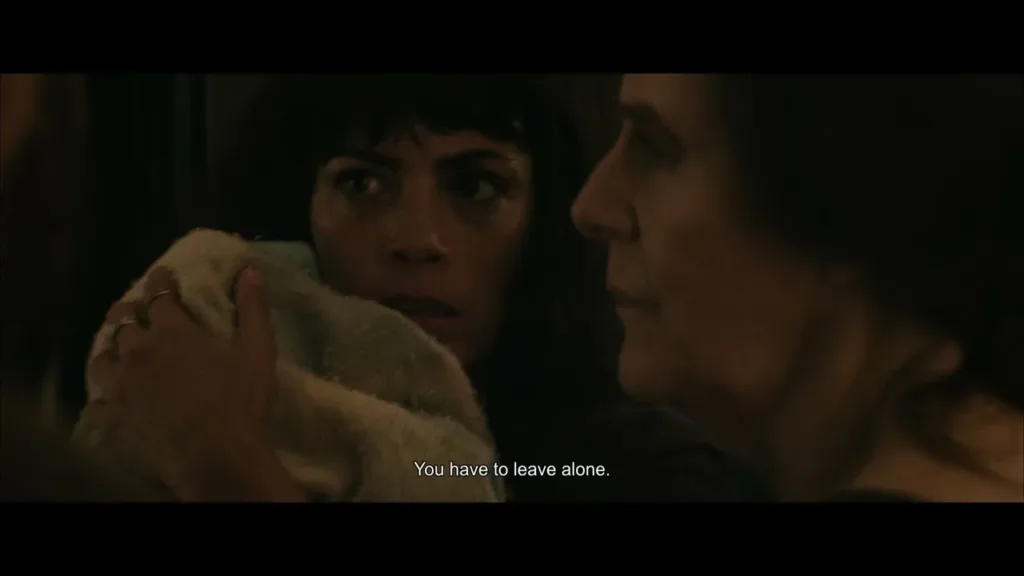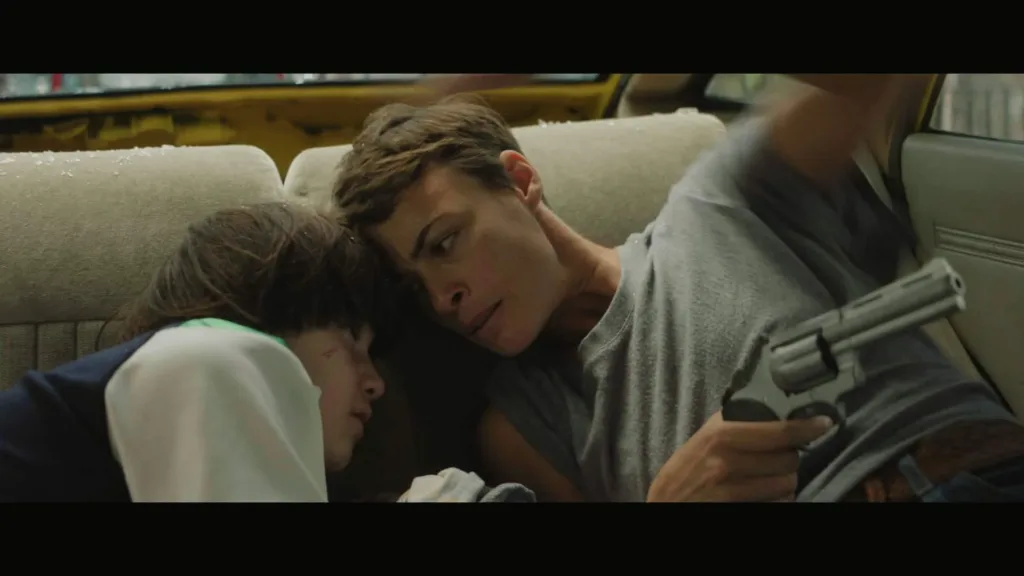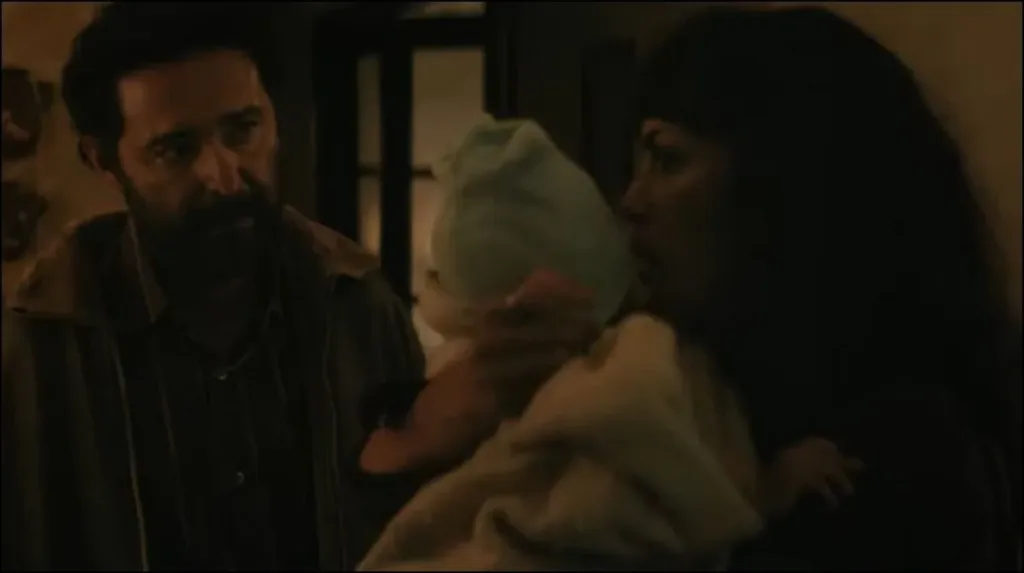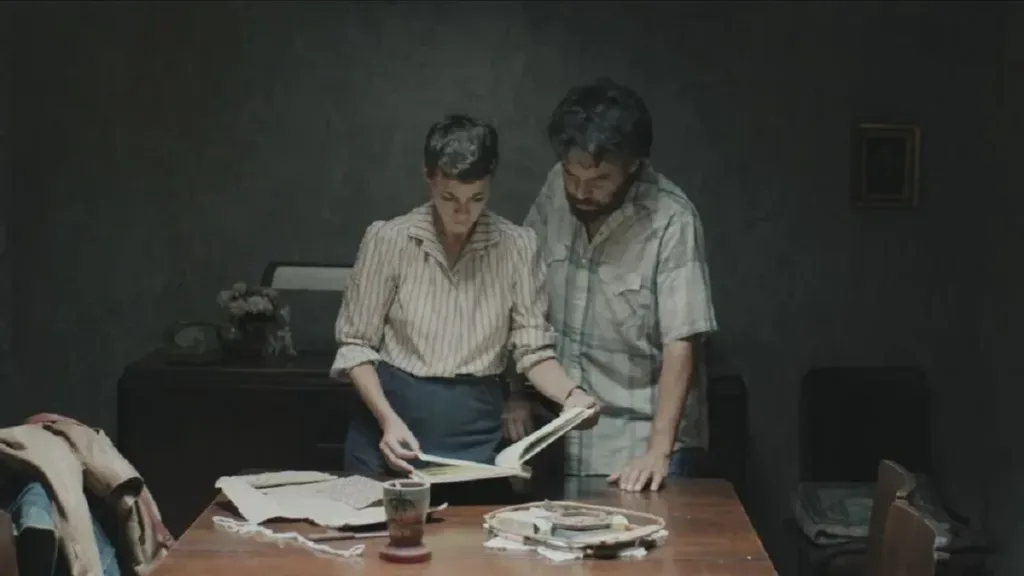Set against the vibrant backdrop of Mexico in 1986, Mexico 86 shines a light on one woman’s battle between revolutionary zeal and maternal love. From acclaimed director Cesar Diaz comes this intimate portrait of Maria, a rebel activist forced to flee her home country of Guatemala amidst that nation’s brutal civil war. Living in exile a decade later, Maria juggles secret missions against the dictatorship with her newly reunited role as mother to young son Marco.
Based closely on Diaz’s own experiences growing up, the film transports us to a time and place that shaped his life. As a child in war-torn Guatemala, Diaz knew both the thrill and pain of political upheaval through his mother’s courageous yet conflicting path. Now a filmmaker, he honors her memory with this deeply felt drama exploring what it means to be a mother in the midst of revolution. With sensitivity and care, Diaz shines light on the personal costs of public struggle and how one woman’s dilemma reflects so many hidden journeys of the past.
Starring Bérénice Bejo in a captivating turn as Maria, Mexico 86 offers a vivid yet understated glimpse into one family living parallel lives—the mother devoted to toppling dictatorship, the son longing to know the parent beneath the disguise. As the World Cup balloons in optimistic celebration around them, their reunion blossoms with equal parts resilience and friction. But political tides threaten to tear them apart once more in this illuminating portrait of motherhood amid tumultuous times.
Motherhood and Rebellion
Maria’s journey begins in the turmoil of 1970s Guatemala. A mother and committed activist, she watches in horror as soldiers murder her husband in the street. Facing threats on her own life, Maria flees with her infant son Marco, leaving him in the care of her mother while seeking refuge in Mexico.
Ten years later, we find Maria living a double life under the alias Julia. By day she proofreads articles for a newspaper, keeping her radical views hidden. But by night, she works with her partner Miguel to undermine the dictatorship from the shadows. Ever the revolutionary, Maria remains devoted to toppling the regime despite the distances of exile.
It’s during this time Marco reenters Maria’s world. Now a curious 10-year-old, he stays with his mother as his grandmother’s health worsens. But Maria’s newfound parental duties conflict with commitments to her cause. Juggling missions and motherhood proves immensely challenging.
Maria’s struggle to balance these roles tests her relationship with free-spirited Marco. Always longing for stability, the boy struggles with his mother’s absence and the uncertainty of her world. Maria too feels the distance of lost years and works to reconnect, even as her work threatens their safety.
As the film progresses, Marco grows more disillusioned with his mother’s dedication to danger. He seeks the normalcy forbidden by their circumstances. Their bond faces mounting pressure as Maria risks families for her fight.
Amidst these tensions, Miguel provides quiet support for Maria’s crusade. But even he questions how much one can sacrifice before losing the very things worth fighting for. In the end, mother and son must determine where their parallel journeys will lead before enemies from Guatemala’s past catch up to their stories for good.
Capturing a Nation’s Torment
Few directors understand oppression’s toll like Cesar Diaz. Born amidst Guatemala’s bloody conflicts, he experienced firsthand how revolution ripped families apart. Now with Mexico 86, Diaz shines a light on those untold hardships through visceral storytelling.
This skill stems from his documentary roots, giving voice to the voiceless. Mexico 86 feels no less authentic, transporting us to Eighties-era Mexico through gritty production. Locations immerse us in the period, as weathered interiors and dusty streets bring Diaz’s memories to life.
Complementing this realism, Virginie Surdej’s cinematography grabs you by the collar. Intimate close-ups breathe anxiety into everyday disguises, evoking life constantly watched. Meanwhile, cramped wideshots accent claustrophobia within this tight-knit cell, fear and paranoia seeping through grime-toned aesthetics.
Perhaps most affecting though is Remi Boubal’s emotive score. Dark, discordant notes mirror turmoil beneath events’ surface, unsettling tranquility before violence. Quieter themes flow with longing too—mothers missing children, countries longing for peace. Music guides us skillfully into characters’ minds and this era’s depth of damage.
Through such mastery, Diaz preserves history that might otherwise fade. His own story inspires sensitivity few could match. While other works glimpse revolution, Mexico 86 immerses us in its lived toll. Combined with deft direction, passengers feel this film isn’t merely set in the past but rooted in its painful reality even now.
Revolution and Motherhood
At its core, Mexico 86 contemplates what we sacrifice for our beliefs. Maria grapples with this constantly as duty and devotion clash. Her commitment to toppling dictatorship strains against love for her child.
Time and again, Maria chooses cause over family. She risks all in dangerous missions, seldom seeing Marco for his safety. But with him suddenly in her care, her double life endangers what she fights to protect. Maria must balance preventing bloodshed abroad with protecting her son beside her.
Her dilemma reflects director Cesar Diaz’s own past. Born amidst Guatemala’s storms, he knew well the costs of exile and family division. His film understands both the passion that drives revolution and the pain it leaves in hearts and homes.
Other themes emerge too from this turbulent time. Life in the shadows, forever fearful of discovery, shadows Maria and Marco’s bond. Distance strains what should be unconditional, leaving scars of absent years. Even victory seems a double-edged sword—does progress demand particular people suffer?
Diaz finds poignancy where politics and private lives intersect. Maria and Marco’s journey reminds us how global events play out through individual lives. Their bittersweet reunion shows love preserved in spite of all the world attempts to shatter it. Even in the story’s shadows, a light persists of what we’ll endure to simply be together.
Mexico 86 ponders the sacrifices of a generation. Its exploration is all the more impactful, drawn from the director’s own memories of sacrifice and survival, but most of all his enduring grip on a mother’s love that could neither be dampened by danger nor dissolution by distance. The film honors all who kept fighting in the shadows, enduring so future generations may never know such nights.
Revolution in the Eyes
At the heart of Mexico 86 burns an unforgettable performance from Berenice Bejo. As Maria breathes a fiery soul into a woman torn between cause and child.
Bejo makes easily understood Maria’s irresistible draw to justice. Passion radiates from her eyes as speeches ignite resolve. Yet in quieter moments, we glimpse the mother seldom seen—a gentle glance expressing years of missed memories.
Such private sorrows few could witness, given Maria’s shrouded life. But through subtle gestures, Bejo strips away disguise to reveal the woman within. She excels at conveying a revolutionary’s endless watchfulness, every public word coded, each reaction calculated. Her poise leaves us feeling the drain of constant vigilance.
Stealing many scenes comes Matheo Labbe’s breakthrough as troubled son Marco. Labbe grasps Marina’s neglect leaves a vacuum yearning to be filled. Resentment flashes across his face, mixed with a child’s hope that love may overcome distance. Their repaired bond feels genuine thanks to Labbe’s naturalism.
Supporting standouts include Leonardo Ortizgris as Miguel. His character reminds Maria another life exists beyond fighting, bringing bittersweet wisdom. Julieta Egurrola, moreover, breaks hearts as the ailing mother whose final words linger with viewers.
Across the board, authenticity marks these performances. But it’s Bejo who lingers long after, her expressive eyes translating revolution’s intimate toll better than words ever could. In Maria, she brings to brilliant life the personal pains of those who change nations.
Illuminating Hearts Amid Shadows
Within Mexico, 86 beats a heart too seldom seen on screen. Director Diaz shines light into lives seldom understood, bringing a turbulent past into focus. The film pulls viewers deep into its world through visuals, feeling lived rather than merely portrayed.
Sprinkled throughout also come scenes stirring sensitive souls. A car chase builds tension like few, danger palpable from ordinary streets transforming. Elsewhere, a phone call exposing love’s limits grips, family’s fleeting moments feeling forever.
Yet for all its resonance, some yearn deeper, delving into Maria’s mind. While her plight moves, motives stay somewhat surface. Peering inside her full humanity may have critics, audiences fully sharing her soul’s unending warfare.
Similarly, domestic scenes tee up profound emotion, though sometimes fizzle chances to linger in longing’s depths. Snatching further moments soaking in family’s fragility might elevate already-strong bonds even higher.
In fairness, many narratives with wider scopes face tightrope walks between depth and breadth. Diaz juggles personal and political themes masterfully, illuminating shadowy pasts through unforgettable characters. While tighter focus could enrich, his efforts spread light where before lay only darkness, bringing history intimately alive.
Mexico 86 shines brightly despite minor missed notes, its illuminations far outshining fleeting flickers hoped fuller. Diaz brings a nation’s trials home, helping ensure some pains can now find solace that others may walk freer skies. For inspiring such, every frame deserves applause.
The Shadows of Revolution
In the shadows of revolution, Mexico 86 shines light on families torn apart. Director Cesar Diaz invites viewers into lives obscured by history, crafting a deeply affecting story that feels woven from his own memories.
Though not flawless, the film resonates long after via earnest performances and gripping verisimilitude. Beneath thrillers’ surfaces beats a poignant examination of ideology’s cost upon the intimate bonds between a mother and son.
Diaz pays tribute to struggles that built nations, but also to the nameless many whose sacrifices history risks forgetting. His work ensures later generations understand oppression breeds not only resistance but also resilient, though fractured, love in the harshest of circumstances.
For anyone fascinated by Latin America’s tumultuous past and its ongoing legacies, Mexico 86 offers intimate insight shaped by experience. Additionally, those who appreciate how personal and political intersect will find much to ponder.
As with all history, these stories deserve retelling lest we lose sight of shared humanity across divides. In Diaz’ deft hands, one family’s persistence illuminates the strength of spirit that lightened shadows of revolution for countless unsung souls before and since. Their journeys, and his own, are films we would do well to carry with us.
The Review
Mexico 86
Mexico 86 shines a light on untold stories from Latin America's turbulent past. Despite some narrative issues, director Cesar Diaz's personal and evocative portrait offers viewers an unflinching look at revolution's human toll. Anchored by outstanding performances, this semi-autobiographical film brings an important history to an engaging yet thoughtful life.
PROS
- Authentic production design transports viewers to an 1980s setting
- Berenice Bejo delivers a compelling central performance
- Highlights an important period of Guatemalan history and struggles
- Explores profound themes of political sacrifice and family bonds
- Director Cesar Diaz brings a personal understanding to the story
CONS
- Narrative could have developed Maria's character more deeply
- Some family drama scenes feel like missed opportunities
- Occasional lack of emotional weight despite strong subject matter
- Predictable story beats at times
- Minor script issues despite authentic roots





















































